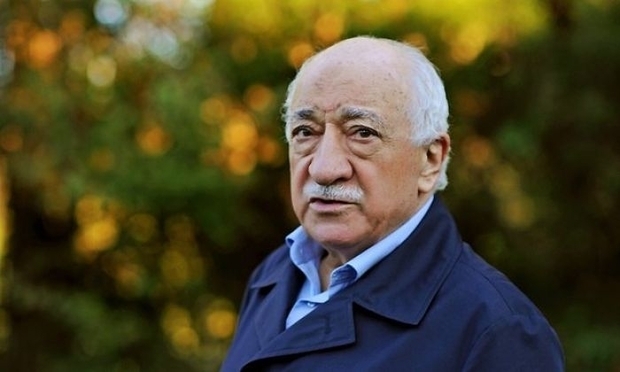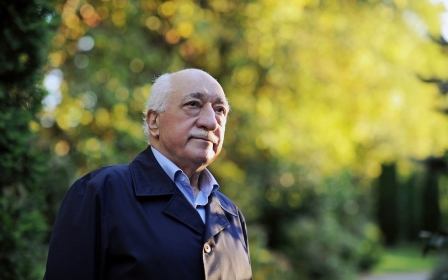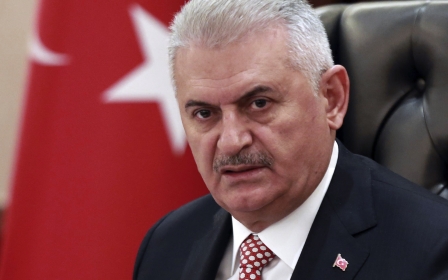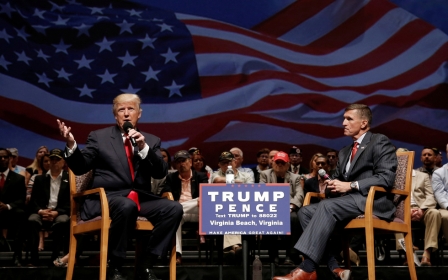Are US and Turkey heading for a divorce?
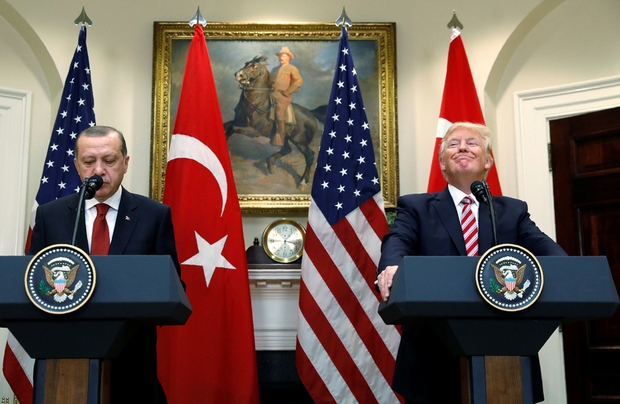
When US Vice President Mike Pence and Turkey's prime minister, Binali Yildirim, met at the White House last Friday, there were no great expectations from the meeting.
The atmosphere was cordial but there seems to have been no progress in resolving the growing tangle of political and legal disputes between the two former close allies. Many people in both countries think that the Turkey-US alliance, which stretches back to the late 1940s, is now crumbling.
A new chapter?
At first sight, the meeting did not go off too badly. The two men talked for 20 minutes longer than expected. Yildirim (who always has a cheerful demeanor) emerged looking fairly pleased. A bad tempered collision of views had evidently been avoided. Anatolia, Turkey’s state news agency, had an optimistic message, declaring that the two sides were "hoping for a new chapter" in their relationship.
That mild remark seemed encouraging compared with the vituperative tone in Turkey’s pro-government media against the outgoing US ambassador John Bass, just a few weeks ago.
The US vice president in his brief readout after the meeting echoed the same aspiration, but his reference to the longstanding strategic partnership between the two countries was offset by a very sharp reference to his concern over "the arrests of American citizens, [US] Mission Turkey local staff, journalists, and members of civil society under the state of emergency."
The question of Gülen and his followers came up at the meeting, but again the US administration seems to have stalled on taking any actual measures against the Gülenists
Probably never before has a communiqué issued about talks between the leaders of two NATO countries contained a similar remark. Coming from a tough hardline right-wing US leader, it was especially remarkable.
As if to emphasise that there is little prospect of the Turkish authorities giving ground on this, soon after the meeting, a Turkish court issued an arrest and detention warrant for a prominent American-Turkish specialist and university teacher and former State Department Official, Henri Barkey, of Le High University near Washington.
Barkey, who is not in Turkey, has been regularly accused by the Turkish media of involvement in the attempted coup in Turkey on 15 July last year.
The question of Gülen
Soon after that came reports that unnamed Turkish officials and General Mike Flynn, President Trump's original choice for national security adviser who was forced to stand down because of his contacts with the Russian ambassador to the US, might have discussed the idea of kidnapping Fethullah Gulen, the exiled Sufi cleric accused by President Erdogan of masterminding the 2016 attempted coup.
These allegations are strongly denied by Flynn.
So what were Pence and Yildirim able to say to each other? The question of Gulen and his followers came up at the meeting, but again the US administration seems to have stalled on taking any actual measures against the Gulenists. That is surprising given that some international diplomats now accept that the Gulenists were almost certainly involved in the putsch.
In return the US side brought up the list of Americans and local consular employees in prison in Turkey awaiting trial for alleged terror offences which Washington firmly rejects.
Pence played the only card that the US has left by promising that the US continues to be committed to standing with Turkey against terrorism from the PKK
With the logjam on issues like this occupying the foreground of public attention, there could be little progress on other issues such as the lifting of restrictions on the issuing of travel visas between the two countries, or larger ones such as strategic cooperation in Syria and the ending of US cooperation with the Syrian Kurdish enclaves.
Pence played the only card that the US has left by pledging that the US continues to be committed to standing with Turkey against terrorism from the Kurdistan Workers Party (PKK). However this assurance does not mean very much while the PKK, not to mention other Marxist militants from Turkey, are comrades-in-arms of the US-backed forces in Syria, the SDF, in the fight against Islamic State.
The Reza Zarrab case
The fact that court cases and trials are ongoing in both countries against each others' citizens makes matters increasingly unmanageable for the politicians trying to resolve them. However matters may become clearer later this month when the most important court case opens after 21 months of waiting.
On 27 November, the trial begins in Manhattan of Reza Zarrab, a Turkish-Iranian businessman, and a Turkish state banker, both accused of sanctions busting by trading gold for oil.
Zarrab was very closely associated with Turkey's top political circles and indeed honoured by them. President Erdogan has several times raised the case with the Trump administration as he did last year with former vice president Joe Biden under its predecessor.
However, in the USA, politics and the courtroom are kept firmly apart, preventing any kind of deal. But it's just possible that some kind of way out might yet be found.
Zarrab, the main defendant, is now not expected to be in court: only a solitary banker will actually appear. The tactics of Zarrab’s lawyers are causing some puzzlement in the US legal profession since it would be normal for a defendant's case to be pressed very hard in his circumstances.
There seems little doubt that President Trump and the generals around him want to halt the drift towards breakdown in the US-Turkish strategic relationship
Perhaps, as reports in the American press suggest, there will be a possible plea bargain by Zarrab. So Pence and Yildirim are likely to have agreed that until the Zarrab case takes a definite direction, any Turkish-American fence mending is off.
That is not to say that there is nothing that could be done to ease the atmosphere. At any time Turkey could release the prisoners it is holding, a move which would breath renewed life and goodwill and a little normality back into relations. The US could also demonstrate that it is not arming the PKK. Ankara considers the YPG (a Syrian Kurdish movement fighting alongside US-backed SDF against IS in Syria) to be affiliated with the PKK. Recently Turkish Defence Minister Nurettin Canikli said that the US supplied weapons to the YPG.
There seems little doubt that President Trump and the generals around him want to halt the drift towards a breakdown in the US-Turkish strategic relationship. But current circumstances give them no scope for doing so. On top of all that, the US is paying a prohibitively high price for its sheltering of the Gulen movement.
Things might have worked out very differently if the US authorities had cracked down on the Gulenists and shown signs of being willing to investigate them as thoroughly as they would do any other organisation plausibly accused of international terrorism.
As it is the two sides seem locked into a dispute with overtones of approaching divorce and the Yildirim-Pence talks have made little difference.
- David Barchard has worked in Turkey as a journalist, consultant and university teacher. He writes regularly on Turkish society, politics and history, and is currently finishing a book on the Ottoman Empire in the 19th century.
The views expressed in this article belong to the author and do not necessarily reflect the editorial policy of Middle East Eye.
Photo: Turkish President Recep Tayyip Erdogan, left, and US President Donald Trump met previously in May (Reuters)
Middle East Eye propose une couverture et une analyse indépendantes et incomparables du Moyen-Orient, de l’Afrique du Nord et d’autres régions du monde. Pour en savoir plus sur la reprise de ce contenu et les frais qui s’appliquent, veuillez remplir ce formulaire [en anglais]. Pour en savoir plus sur MEE, cliquez ici [en anglais].



